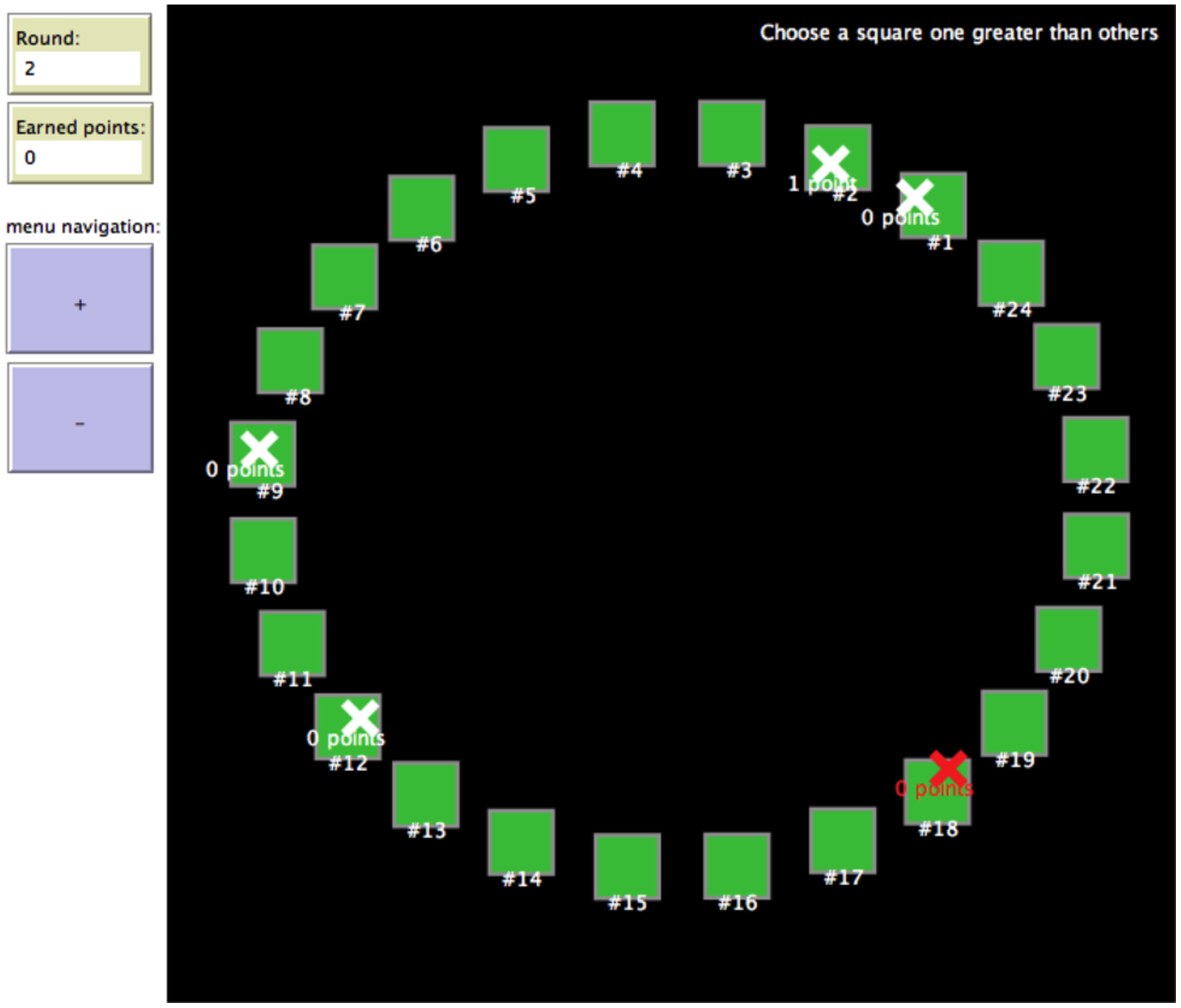 This paper, published with my advisor Rob Goldstone, reports a major result of my dissertation, that people can flock not only physically, but also in their depth of iterated reasoning through each other’s motives. It is interesting because of the many economists who hoped that type of reasoning would prevent flocking. Ha!
This paper, published with my advisor Rob Goldstone, reports a major result of my dissertation, that people can flock not only physically, but also in their depth of iterated reasoning through each other’s motives. It is interesting because of the many economists who hoped that type of reasoning would prevent flocking. Ha!
* Here is the paper: http://dx.plos.org/10.1371/journal.pone.0056416
which follows the preprint
* One-minute video of this emergent cyclical behavior: http://vimeo.com/50459678
* Three-minute video explaining it in terms of the movie The Princess Bride: http://posterhall.org/igert2012/posters/218
* And here is a press release draft to give you a sense of it:
Rock-Paper-Scissors reveals herd behavior in logical reasoning
“Poor Bart, always picks Rock.” In these telling words from Lisa Simpson, we see Rock-Paper-Scissors as a game of mind reading. Scientists have already used Rock-Paper-Scissors to study how we cooperate, to show that we are bad randomizers, and to build AIs that can beat us at our own game. But this simple game has many more tricks up its sleeve. Rock-Paper-Scissors gives us the ideal case study for herd behavior in higher-level reasoning: specifically, thoughts about the thoughts of others. You would like to think that your thoughts are your own, but recent work from the Indiana University Cognitive Science program shows that people playing Rock-Paper-Scissors subtly influence each other, converging on similar ways of reasoning over time. The natural analogy is to a flock of birds veering in concert.
In work appearing in PLoS ONE (XXX), Seth Frey and Robert L. Goldstone introduce a version of Rock-Paper-Scissors called the Mod Game. In each round, they gave IU psychology undergraduates a choice between the numbers 1 through 24. Participants earned money for picking a number exactly one greater than someone else, but the choices wrapped around in a circle so that 1 beat 24 (just as Ace beats King in card games). Participants just had to anticipate what others were going to pick, and pick the next number up — keeping in mind that everyone else was thinking the same thing. In this game of one-upmanship, the best performers aren’t the ones who think the most steps ahead, but the ones who think just the right number of steps ahead — about two, as it turned out in the experiment.
Many economists predict that with enough experience, people should be able to think infinite steps ahead, or at least that their number of steps should increase dramatically over time. But this isn’t what happened in the Mod Game. Instead, when participants were shown each previous round’s results, they tended to cluster in one part of the circle of choices and start bounding around it in synch. Groups produced a compelling periodic orbit around the choices, reminiscent of the cultural pendulum swinging back and forth, bringing, say, moustaches in and out of fashion. Interestingly, the cycling behavior consistently got faster with time. This means that people did learn to think further ahead with time — the economic prediction was partly correct — but the increase was much less dramatic than it ought to have been: after 200 rounds of the Mod Game, the average number of thinking steps increased by only half a step, from 2 to 2.5. Moreover, herding in this game benefited everyone; a tighter grouping of choices means a higher density of money to be earned in each round.
What does all this mean for society? Typical treatments of higher-level reasoning look to it as preventing herd behavior, but we can now see it as a source. Anticipation may be the motor that keeps fads running in circles. It could be a source of the violent swings that we see in financial markets. And if you’ve ever been in a bidding war on Ebay, you may have been caught in this dynamic yourself. If every bidder is tweaking their increasing bids based on the tweaks of others, then the whole group may converge in price and in how those prices rise. The process isn’t governed by the intrinsic value of that mint Star Wars lunch box you’re fighting for, but on the collective dynamics of people trying to reason through each other’s thoughts. Whether looking at benign social habits or mass panics, social theorists have always treated human herd behavior as though it resulted from mindlessness. But this simple lesson from Rock-Paper-Scissors suggests that even the most sophisticated reasoning processes may be drawn about by the subtle influence of social interaction.



One thought on “In PLOS ONE: Cyclic dynamics driven by iterated reasoning”